Favorites takes a lighter approach to the material we normally cover. Each week, we will take you through a list of favorites – whether it’s moments, scenes, episodes, characters, lines of dialogue, whatever! – in bite-sized articles perfect for your lunch break, a dull commute, or anywhere you need to take a Moment of Zen. So, sit back and enjoy this week’s offering: Aaron’s favorite film and TV villains.
Villains are some of my favorite types of characters, especially if they’re well-written ones. While many times I will enjoy simplistic, completely unsympathetic villains, other times I am drawn towards (and even care for) those who are complex and well developed. Also, when gifted actors play a villain well, it inevitably adds to the character’s allure. This list of villains covers all of these types. I’m going to attempt to avoid explicit spoilers as much as I can, but I still advise caution for those who may want to hunt down these works of art so they can enjoy them for themselves. I’m inevitably going to drop a few hints of events so beware! Anyway, let’s get started! In no particular order, here are my top 10 favorite villains in film and television!
1.) Nurse Ratched (Louise Fletcher), One Flew Over The Cuckoo’s Nest (1975)
Nurse Ratched’s name brings to mind an image of that tool that tightens and tightens the screws, not giving them any release until they are firmly in place, unable to move or budge from where they are “meant” to be. In Ratched’s eyes, this is exactly the role she plays as the main nurse in the mental hospital where McMurphy (Jack Nicholson) finds himself after feigning insanity to get what he hopes to be a relaxing vacation from jail. Instead, he comes to encounter this monstrous woman who enjoys lording her superiority over those who she considers to be weaker than herself and undeserving of sympathy. She keeps her ward running like a well-oiled machine, devoid of humanity. Symbolic of the uncaring nature of society, Ratched’s actions at the climax of the film cause unspeakable tragedy, but McMurphy does not let her have the last word over his newfound friends, and neither does Chief Bromden.
2.) Ramsay Snow (Iwan Rheon), Game of Thrones
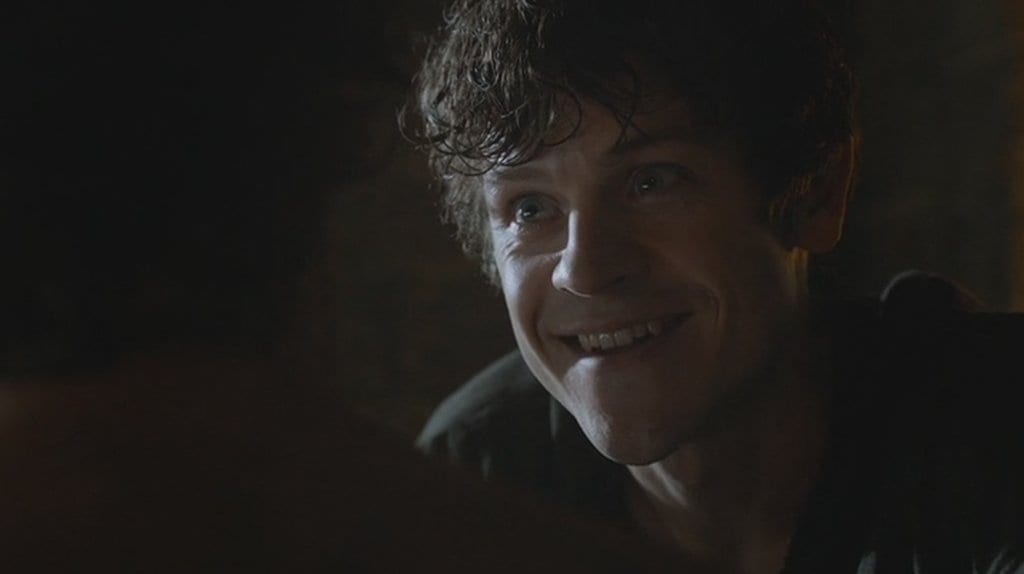
A character whose darkness exceeds even that of the hated Joffrey Baratheon, Ramsay Snow commits acts so evil that I’m not even going to allude to them here. He’s the most psychopathic villain that has ever existed on Game of Thrones—a show already overflowing with them. He’s not particularly complex in any way, other than his jealousy towards others for taking positions that he feels are rightfully his. Rheon plays Ramsay’s insanity in frightening ways, and just when you think he’s done the worst thing you think possible, he pushes the limits even further.
3.) Mr. Gold/Rumplestiltskin (Robert Carlyle), Once Upon a Time
Rumplestiltskin/Mr. Gold is my favorite sympathetic villain in all of television. Most of that is due to Carlyle’s brilliant portrayal of the character. Once Upon a Time constantly switches between its real-world setting and the fairy-tale realm, so Carlyle is essentially playing two characters. At times he’s even playing three when he embodies Rumple before he has taken on the mantle of the Dark One. Rumple’s backstory is immensely tragic and his quest to find his son, who he lost due to his power-hungry nature, is the catalyst for the casting of the Dark Curse and puts the series’ plot into motion. He spends the rest of the story in a constant battle for his soul, his only hope for salvation found in his relationship with Belle (Emilie de Ravin). I was constantly rooting for him to make good decisions, only to lament his backslide into his darker nature time and time again.
4.) Thanos (Josh Brolin), Avengers: Infinity War (2018)
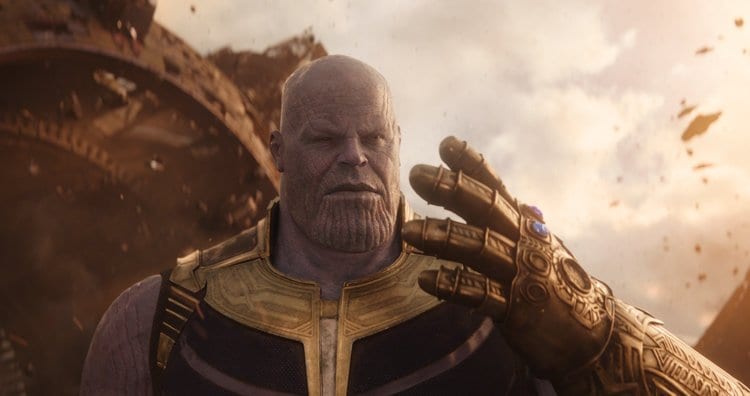
Any character that feels they have to rid themselves of any light remaining in their soul in order to accomplish a mission is tragic to me—even a character as dark as Thanos. I hate seeing the light of goodness willfully extinguished. Thanos is driven by pure scientific logic, and his way of seeing the world convinces him that sacrificing half of the universe’s population in order to ensure the survival of the remaining portion is actually a humanitarian act. He has a god-complex of the highest order and the actions he takes in the film weigh heavily on him, even if he manages to hide it well. Brolin’s acting, both in physical capture and voice-over, embodies the character’s tragic trajectory.
5.) Roy Batty (Rutger Hauer), Blade Runner (1982)
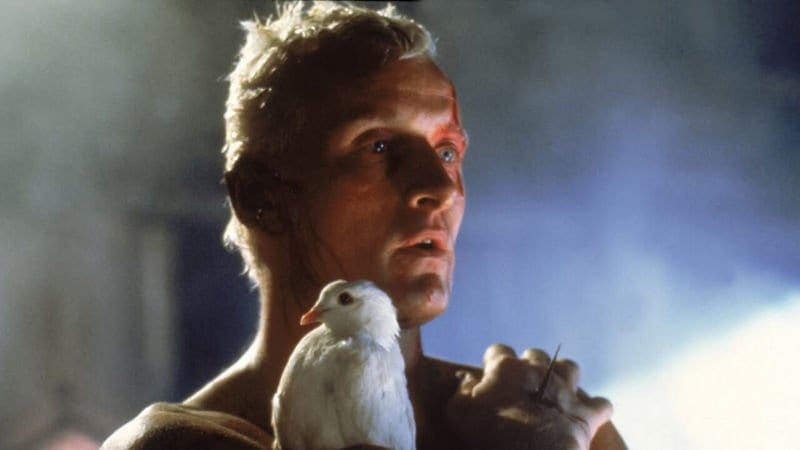
Roy is a hard character to classify and pin down. As the above quote implies, he may actually be an overall better person than Deckard (Harrison Ford). The moral ambiguity of the characters in Blade Runner is a heavy component of the film, and all Roy and his replicant friends really desire is the chance to prolong their lives and not live as indentured slaves. It’s not difficult to see Deckard as the actual villain of the picture, committing a murder spree on the replicants. Considering this, it’s surprising that Roy’s dying action is one of compassion and empathy towards his enemy.
6.) Johan Liebert (Nozomu Sasaki), Monster
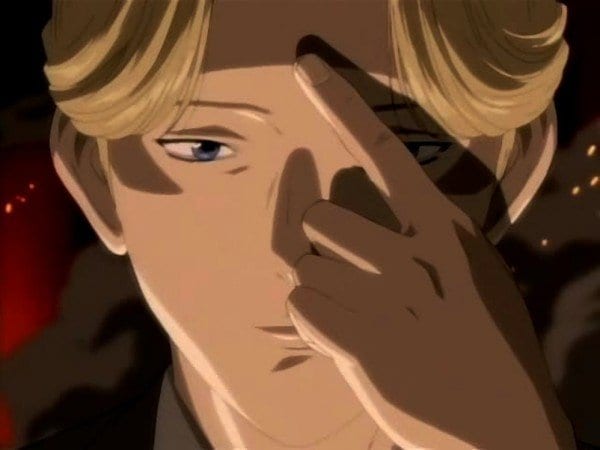
Directly compared to the Antichrist by the show itself, Johan Liebert is cold, intelligent, calculating, and charismatic. He is also a serial killer with a hidden agenda who aims to prove the innate darkness of the heart. How much is a life worth? Is Tenma (Hidenobu Kiuchi) justified in killing Johan to bring his evil reign to an end? Should he break his Hippocratic Oath to murder the man who has murdered countless others? This moral quandary is compounded for Tenma because he was the one who brought this “monster” back to life in the first place. The tragic backstory of Johan’s life is told as Tenma investigates the origin of this evil. Was it instilled in him by others or is it truly innate?
I’m going to add an addendum to this particular entry. Monster is a fantastic mature series which will appeal to all audiences who enjoy mysteries, thrillers, and dramas. Even those who are not drawn to anime as a medium owe it to themselves to watch this show. It is realistic in every sense of the word, and that’s what makes it so chilling. Plus, Naoki Urasawa, the writer of the original manga, is a Twin Peaks fan and has added references to the series within his story.
7.) Javert (Russell Crowe), Les Misérables (2012)
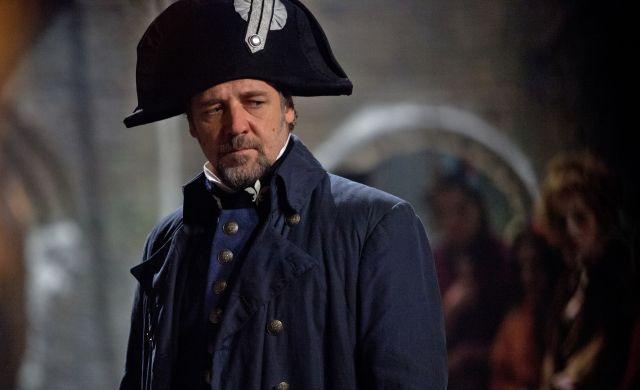
Unfortunately, I have not seen earlier versions of Les Misérables (I haven’t even seen the musical live), so I’m stuck with referencing Crowe’s interpretation of the character. As anyone who has seen the film can confirm, acting and singing do not mix well for Crowe. But the substance of his character remains a timeless archetype that is extremely fascinating to me. Javert embodies many characteristics that society finds admirable. He is a law-abiding, justice-dealing, worshipper of God. His image of God, however, is dead wrong. Javert believes that the Almighty deals out hard justice to all wrongdoers and has no room in his heart to lend penitent men grace or forgiveness. Javert embodies these characteristics himself, and thus his heart has hardened to the suffering of those around him, even to the destitute and struggling prostitute mother Fantine (Anne Hathaway). His long pursuit of Jean Valjean (Hugh Jackman), known only to him as “Prisoner 24601,” drives him down a road of darkness from which he can not return.
8.) S.E.E.L.E. (Various Voice Actors), Neon Genesis Evangelion and The End of Evangelion (1997)
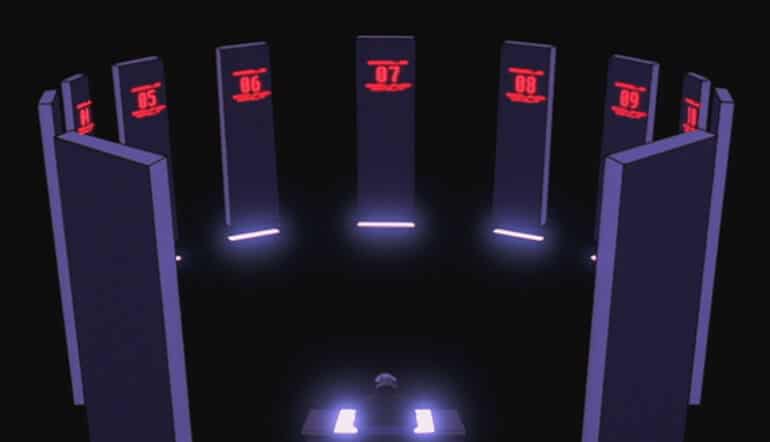
Not a particular character, but rather a collection that organizes as a secret group, S.E.E.L.E.’s plan in Neon Genesis Evangelion is a long-orchestrated chain of events that they hope will eventually result in the evolution of mankind’s collective consciousness. Their goal is to rid the world of suffering and conflict, which may sound like a benevolent one, but their methods are immoral and the philosophical implications of their position do not leave mankind moving forward but stuck in a static state. They are in constant conflict with Gendo Ikari (the protagonist’s father), who has a similar goal but whose motivation is entirely different. These two competing agendas clash in a cataclysmic event that can only be referred to as the apocalypse.
9.) Dennis Reynolds (Glenn Howerton), It’s Always Sunny in Philadelphia

Out of all the members of “the gang” in It’s Always Sunny in Philadelphia, Dennis is undoubtedly the worst. He’s utterly selfish, definitely a sociopath, possibly a murderer and most likely a rapist—or, at the very least, has tendencies in that direction. So why is he so gosh darn funny? The picture above is from the Season 11 2-part finale (“The Gang Goes to Hell”) and the quote is from season 6, episode 3 (“The Gang Buys a Boat”), in which Dennis talks to Mac about a woman not refusing sex to them because of the implication of what might happen to her while alone at sea with a couple of strangers. It’s disturbing but darkly funny in its own right:
But in “The Gang Goes to Hell,” Dennis corners a young girl on a cruise ship, and the following exchange occurs:
This scene starts out slightly creepy with a few moments of humor and then escalates to the point where it’s highly, highly uncomfortable. Then in the final moment, all the tension is released in a very humorous way when the girl runs off screaming and Dennis is left wondering what the hell went wrong.
Dennis is so exaggerated and so delightfully over the top in his narcissism that he is completely oblivious to the fact that everyone hates him. He has a severe superiority complex, and he spends a lot of his time trying to prove that he’s better than other members of the gang, going to extreme lengths to do so. Often he becomes the villain/antagonist of the group, attempting to bring down the others’ schemes and playing everybody against each other, and it’s just so enjoyable to watch his antics.
10.) Tyler Durden (Brad Pitt), Fight Club (1999)
Tyler Durden gets the special privilege of technically being both the hero and antagonist of the film. Although the Narrator’s relationship with Tyler starts out friendly, eventually Tyler develops into an antihero who is overshadowing the Narrator, and then into a full-fledged villain when the true relationship between him and the protagonist is revealed. What’s so intriguing about Tyler is his anti-consumerist philosophy and his belief in the lies of the ego. His belief system is one of self-destruction, but eventually, his teachings jump from existentialism into full-blown nihilism and fascism, and he needs to be stopped.
Those are my top ten picks, ranging from evil to self-righteous, to misguided, to misunderstood. Who are your favorite villains? Join the conversation and let us know in the comments or on social media!


Frank Booth in BLUE VELVET. Dennis Hopper portrays him with utter insanity and terrifying menace. “Baby wants to fuuuuuck!”
I do consider him an amazing villain, but I wanted to leave out Lynch villains because it would be too obvious.
It has to be BOB of course. As an inhuman entity he is completely unchangeable, unlike ‘ villains’ such as Spike or Angel who always have humanity somewhere, or comic book villains such as Magneto who has a tragic past there is no humanity to redeem. Leland Palmer has to come next, for obvious reasons, but I think that Diana from 80s sci fi hit V is worth mentioning, she stays evil throughout the entire series without ever being bothered by her conscience. To her humans are just lab rats to be tested on or animals to be eaten, and if they get in her way she just steps on them. She even murders her commanding officers when they become inconvenient.